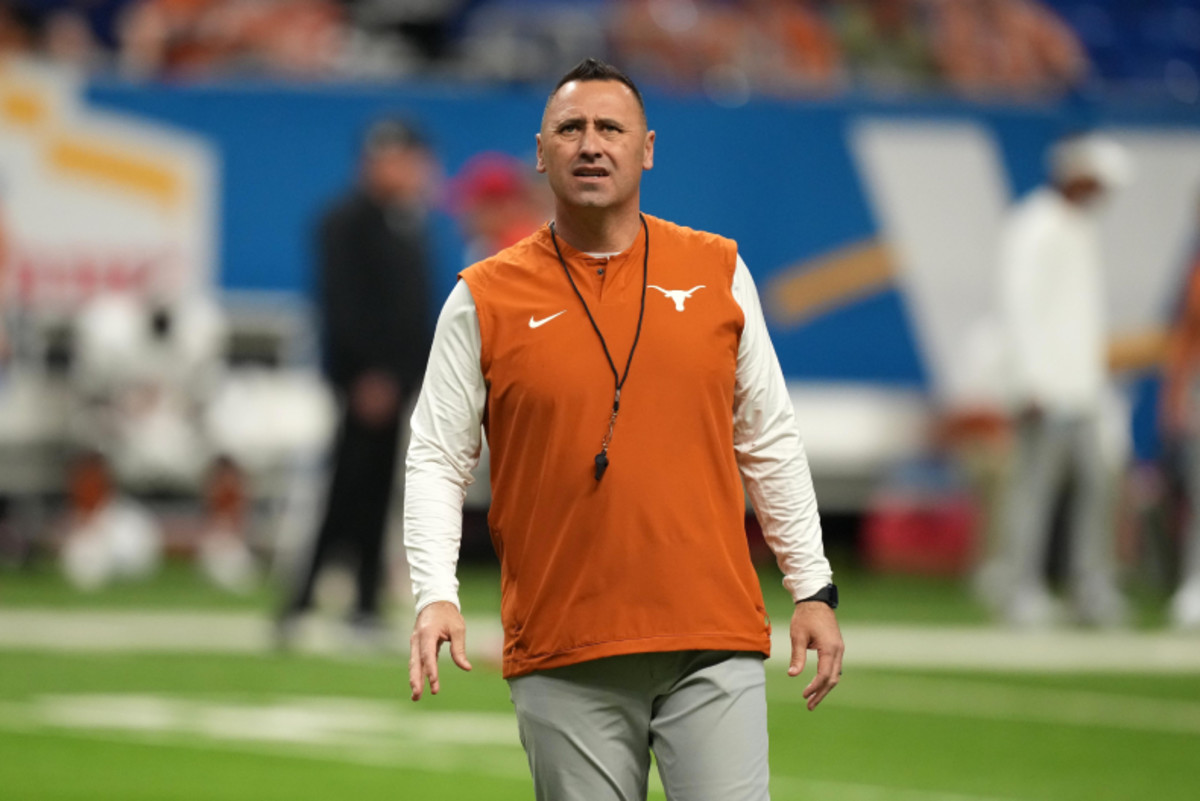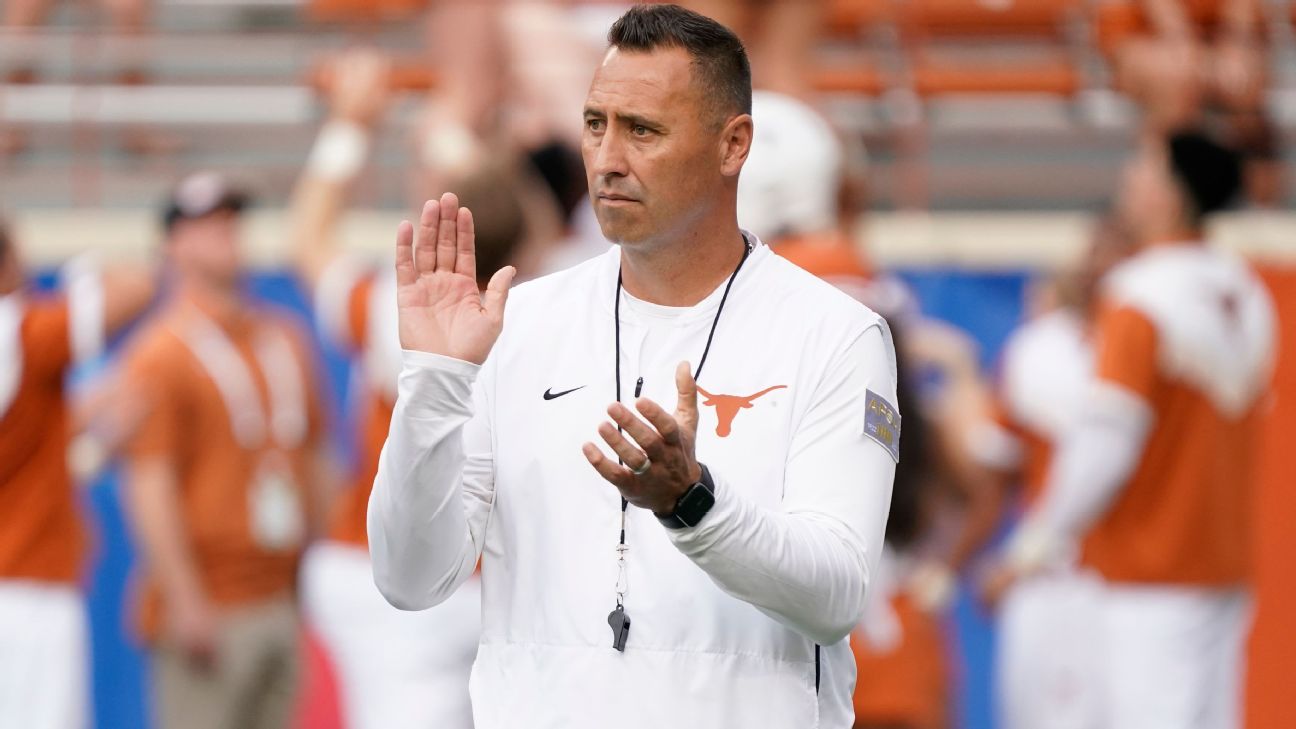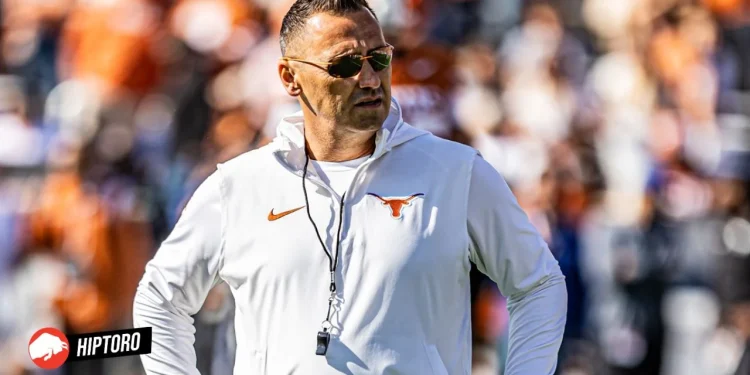In the wake of college football’s seismic shifts, Texas Longhorns’ head coach Steve Sarkisian has secured a groundbreaking contract extension, a testament to his strategic acumen and the University of Texas’ unparalleled revenue generation. This deal not only underscores the changing dynamics of college sports economics but also highlights the growing prowess of Texas on the national stage, propelled by Sarkisian’s leadership.

The Catalyst: Nick Saban’s Departure
The college football world was set ablaze nearly a month ago when Nick Saban, the venerable head coach of the Alabama Crimson Tide, announced his retirement. Saban’s tenure at Alabama was nothing short of legendary, amassing 201 victories, 9 conference titles, and 6 National Championships.
His departure left a gaping void not just in Alabama but across the college football landscape, sparking widespread speculation about potential successors.
Amidst this backdrop, Steve Sarkisian, the man at the helm for the Texas Longhorns, saw an opportunity. Sarkisian’s tenure with Texas has been marked by a resurgence of the Longhorns as a national powerhouse, culminating in a Big 12 Championship and a debut College Football Playoff appearance. With Texas transitioning to the SEC, Sarkisian’s role has become ever more crucial.
Steve Sarkisian’s Strategic Move
Understanding the importance of stability and his bargaining power, Steve Sarkisian leveraged the situation to his advantage. The result was a staggering contract extension that not only doubled his salary to $10 million annually but also included perks such as on-demand private jet access, a membership to the Austin Country Club, two cars, and a luxury suite for all UT games.
These terms are not just a personal win for Steve Sarkisian but a bold statement by Texas about its commitment to dominating collegiate athletics.
Coach Steve Sarkisian—Investment vs Sacrifice pic.twitter.com/zXsRdMJkPg
— Pace N Space (@PaceNSpace2) February 21, 2024
The Economic Juggernaut: University of Texas Athletics
Critics have often questioned the lavish spending in collegiate athletics, and Steve Sarkisian’s contract was no exception. However, a closer examination of the University of Texas’ financials reveals a different story.
With an athletic department generating a record $271 million in operative revenue last year—70% of which was directly attributed to the football team’s success—Steve Sarkisian’s extension represents a mere fraction of the budget.
This financial prowess not only justifies Sarkisian‘s contract in the face of scrutiny but also highlights a broader trend in college sports: the immense revenue-generating potential of successful athletic programs.
With a significant portion of Texas’ revenue being reinvested into the program, the debate shifts towards the allocation of these funds, particularly with athlete compensation and program investment.

The Future of College Football Economics
Steve Sarkisian‘s contract extension with the Texas Longhorns is more than just a personal triumph; it’s a reflection of the evolving landscape of college football economics. As the sport continues to generate staggering revenues, the focus will increasingly turn to how these funds are distributed among coaches, athletes, and the broader university community.
The University of Texas, with its record-breaking revenue and strategic investments, stands at the forefront of this evolution.
As other institutions look to replicate Texas’ success, the story of Steve Sarkisian’s extension may well become a blueprint for the future of collegiate athletic negotiations, balancing the scales of power, performance, and profit in the high-stakes world of college sports.

Source: Steve Sarkisian









